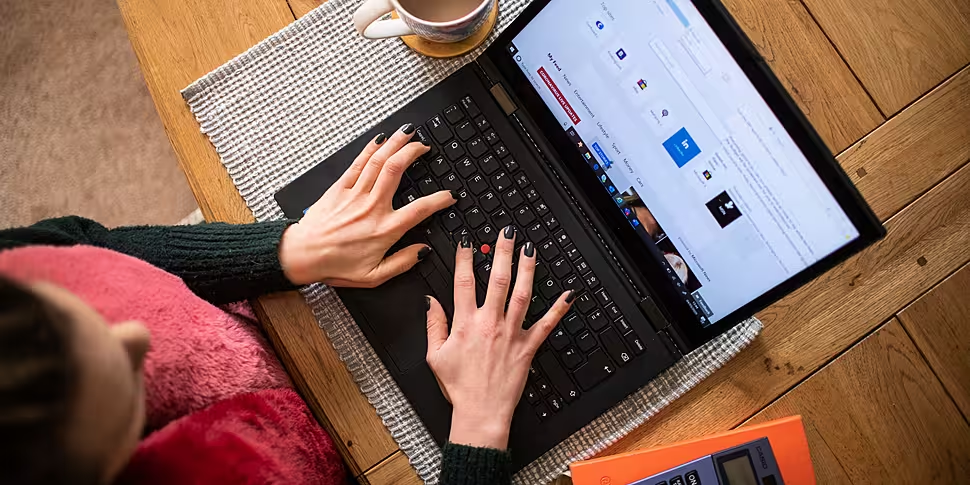Using artificial intelligence-powered tools to monitor workers is likely to lead to "unintended consequences" for employers, an employment expert has warned.
He says people will simply get around tracking technology if it's used to monitor "ridiculous metrics" such as keystrokes or mouse clicks.
It comes after the Irish Congress of Trade Unions (ICTU) raised concerns about the potential use of AI-powered technologies by employers to manage workers.
Such software could monitor the number of mouse clicks, keystrokes and emails per hour.
It could also record things such as the time spent on social media during the workday.
ICTU highlighted the issue in its submission to Government about legislation that would give workers the right to request to work remotely post-pandemic.
There are concerns some workers may feel they need to accept such measures in order to keep their jobs.
Peter Cosgrove - managing director of Futurewise and future of work expert - told The Pat Kenny Show there's going to be a "real problem" if employers don't trust their employees.
He said: “This idea that you have to be literally standing over someone to watch them work - which is essentially what the AI is doing, instead of a human - means you’re probably actually thinking about it in the first place, and you’re going to get these unintended consequences.
“There are people out there who’ve built little robots that bang into their mouse every ten seconds so it continues to move. If you start tracking people against these ridiculous metrics, people will get around them - or they’ll just use their phone to do other things instead of their laptop.
“I’d be really concerned if these [tools] are coming into your organisation - they promise incredible productivity, but actually what they’re doing is probably stopping any sort of innovation or creativity."
Mr Cosgrove said people need some degree of freedom in work, and a lot of these AI tools could take that freedom away.
He suggested that managers need to focus on making sure people are happy in their job, so they’re motivated to work efficiently in the first place.
Neill McDonnell, CEO of ISME, told the show he's not aware of any small businesses thinking of introducing such monitoring tools.
However, he noted employers are required by law to keep track of some details about an employee's workday.
He explained: "Employers are meant to know what time someone starts at, what time they finish at, what time they [go on] break at… that’s a legal requirement.
"Those responsibilities will not go away simply because someone is working from home."
Move to blended working
Speaking on Newstalk Breakfast, meanwhile, Liam Herrick - executive director of the Irish Council for Civil Liberties (ICCL) - said there have already been concerns around the monitoring of employees in the workplace.
He said: "We’ve seen an extension of things like CCTV surveillance.
“This new capacity gives the potential for even more invasiveness, in terms of surveilling people’s activities online.”
He noted that Irish and international case law has determined that it should be expected that people will engage in some "limited and proportional" personal activity while working online.
He said: “The suggestion that all activity by employees that isn’t strictly-speaking task-orientated is somehow illegitimate won’t really stand up."
For the ICCL, the likely shift towards increased "blended working" - split between an office and the home, for example - will be a positive development post-pandemic.
However, Mr Herrick said strong policies and safeguards need to be in place to facilitate that.
He said: “Of course employers will need to take certain measures from a security perspective, and ensure that no illegal activity is happening among their workforce.
“But does that extend to a justification for invasive monitoring of people’s communications and activities? I think it clearly doesn’t.”









